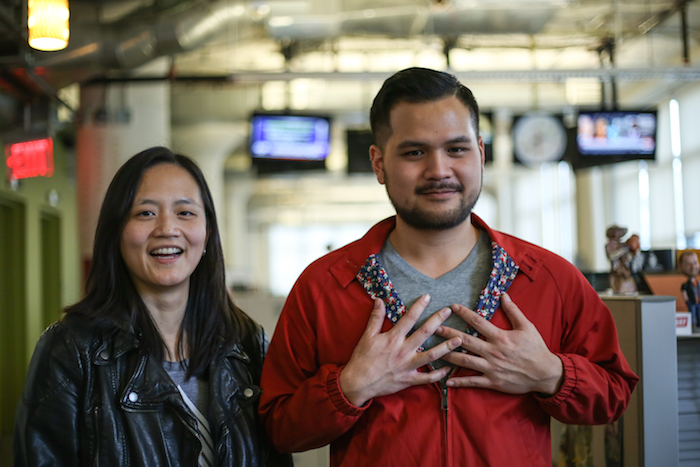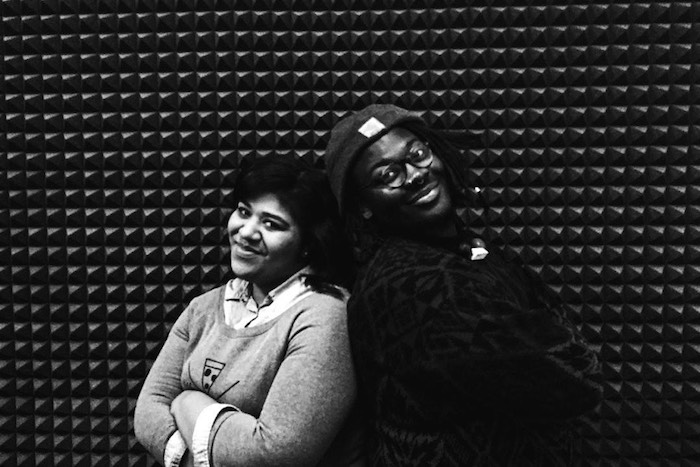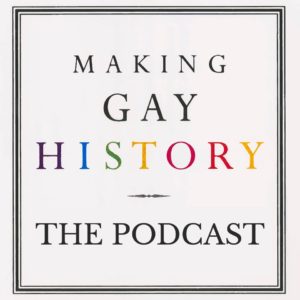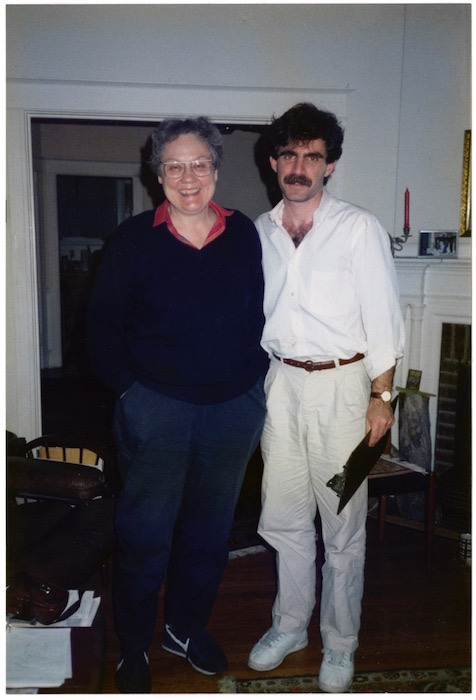At its worst, public radio seems like a coterie of entirely heterosexual white reporters who assume their audience is also straight and white, and any content that features people who are queer, or people who are not white, is framed as a translation of a tragedy or an oddity for the anonymous vanilla mass of listeners. Peter Bresnan, a gay audio producer who I met at the Third Coast International Audio Festival in Chicago this month, says he’s tired of the media’s two typical gay narratives: “Either being gay is the tragedy in a story that ends in death or heartbreak, or the story’s about a gay person, and ‘gay’ is sort of their one and only characteristic. A gay person rather than a person who’s gay.”
In their brief history, podcasts have already done some work to counter this problem. Savage Lovecast is one of the oldest podcasts that remains popular; the show is about all kinds of romantic issues, but the host, Dan Savage, is gay. The Heart (formerly audio smut), an audio-storytelling podcast about love and sexuality, also includes all kinds of relationship tales, but has made a point of featuring queer stories in all of their complexity. A personal favorite episode of mine ponders the place of romantic love in ostensibly platonic female friendships. Very recently, a spate of podcasts more specifically aimed at getting queer stories and voices out into the world are beginning to launch. I caught up with some of the producers responsible for them at Third Coast.

Nancy, a podcast which will launch with WNYC Studios this coming spring, is in the development stage, still finding its identity and its voice. The show’s hosts, Kathy Tu and Tobin Low, are relatively new to the audio world; they met at the Transom Story workshop in 2013, when they were both making a career switch to radio. Last year they beat out other pitches to WNYC’s podcast accelerator, which put out an open call for new podcast ideas. While Tu and Low are still forming their exact mission statement, they do know what they don’t want. “We’re kind of tired of hearing stories where gender or sexuality is the twist. Like somebody’s trying to do something but — surprise! — they’re gay. Or like oh no! They’re trans!” Low told me, sitting beside Tu in the conference hotel lobby.
One episode will feature Tu’s personal story about coming out to her mom, but it’s not going to be the predictable coming out narrative of confession followed by a quick emotional reconciliation: “I get the feeling that how hard my parents worked as immigrants to make it here in the United States — that almost justifies them not accepting me,” she said, explaining that she was coming to terms with the idea that her parents had indeed worked very hard — but that she nonetheless deserved their acceptance, “I’ve been having a really hard conversation with my mom.”
The assumption that a character’s LGBTQ identity would be a surprise, or the entire story, comes, in part, from assumptions about who the audience is. Tu and Low want queer listeners to feel like this podcast is for them, “Buzzfeed’s podcast Another Round, they don’t make it for a straight white audience, they make it for the black community. And they don’t define everything for them,” Tu told me, murmuring that she hopes to live by that example on Nancy. As the interview ended, I pressed them for more specificity about what the show will be. Tu was amused: “When I tell a straight person that it’s a queer podcast, they don’t ask any more questions. But if I tell a queer person that they’re like oh what are you covering? It’s kind of a weird experience at this conference,” she said, “It’s fun, you should try it.”

Postloudness is a Chicago-based podcast collective that highlights the voices of queer people, women, and people of color without forcing them into a box. Cher Vincent explained how the collective blossomed from a podcast called Open Ended, which she co-hosts with James T. Green. Green and Vincent are both black, and Green is queer, and while these aspects of their identities certainly matter for the show, that’s not what it’s about. Vincent says that they when they conceived the collective, they wanted not only to highlight voices like their own, but also to give them as much freedom as possible. In February they began consciously working on creating a “space where [people of color, women, and queer people] can be themselves and not have the hat of queer show or a black show or a person of color show.” Open Ended, for example, is “about the humanity within technology.” A popular recent episode featured Vincent’s own struggle to retrieve her cellphone after she left it on the bus, telling the story through dramatic reenactment and complex sound design. Other shows include Roboism, about the intersection between feminism and robots, covering everything from Siri to the film Ex Machina; and Devil’s Avocado, a show about personal finance, with episodes including #NotallDept, explaining the merits and defaults of different kinds of dept.

Making Gay History is a podcast born from Eric Marcus’s archive of American LGBTQ history, which he also consolidated into a book of the same name. Marcus has devoted much of his life to keeping a record of a history that large swaths of this country have tried to deny. The interviews that Marcus recorded himself, beginning in the 1980s, truly bring history to life. This year, Marcus asked the radio producer Sara Burningham to cut some of the tape, which the New York Public Library has digitized, into short pieces for part of History UnErased’s LGBTQ-inclusive school curriculum. In an email, Burningham told me: “The first time we played the tapes, the first time they had been listened to in almost 30 years, everyone had goosebumps.” They realized that the material on their hands merited more than a few short pieces. OUT Magazine featured some of them on their website, and the work came to the attention of Jenna Weiss-Berman, who produces podcasts for Lena Dunham and others for Pineapple Street media. Weiss-Berman realized that these interviews merited a stand-alone podcast, which she offered to help with, and which launched with Megaphone last month.
As I listen to the show, I was struck by the immediate openness and humor in the voices of people who lived a time when society demanded they be guarded. Edyth Eyde, for example, worked as a secretary in Hollywood in 1947, and published Vice Versa: America’s Gayest Magazine, on carbon paper. Her means of production were limited, and she could only make a few copies of each issue; she advised her friends to pass it around to any other “gay gals” that they knew. The small magazine is now considered the first gay publication, but at the time she didn’t consider herself central figure in an underground world; she said she started the magazine because she was a “very lonely person.” Other moving moments in the podcast include Dr. Evelyn Hooker’s realization that her research — which proved that gay people were just as psychologically sound as straight people — had literally saved people from unnecessarily electro-shock therapy.

Speaking with queer podcasters at Third Coast, I felt a unified sense of desire for diversity in storytelling; not just in the subject matter of the stories, but in who tells them, and how they’re told. For groups that are systematically oppressed, finding representation in the media isn’t the end of the battle, but the beginning; they must also undo damaging and oversimplifying narratives and forge their own. Since Trump’s election, a new sense of urgency has taken hold of the producers I spoke with. “Somebody came up to me at a conference who knew about the show and took my shoulders,” Low told me, “They said, we need this now.”


